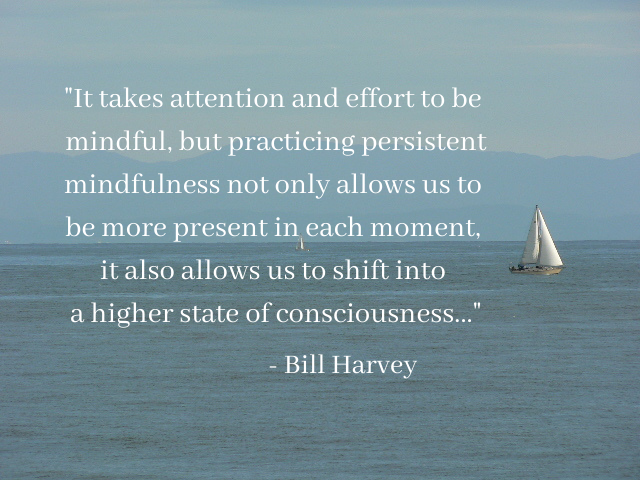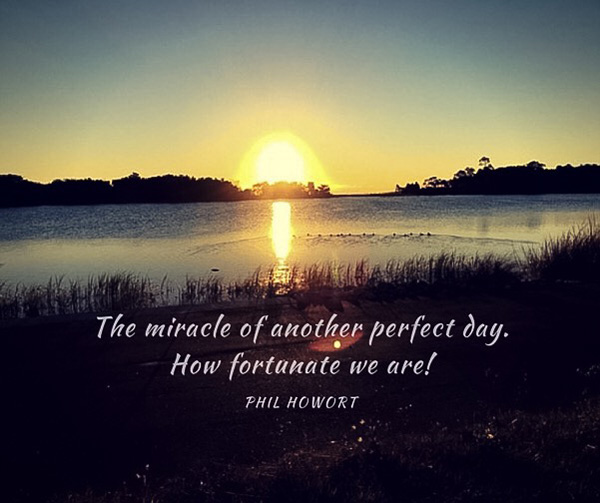Welcome to this week’s Bill Harvey Blog – November 29, 2024
Created February 23, 2024

We have not found any other way to effectively turn off the hate so why not try respect?
Open-mindedness is one of the most important principles of metacognition (continuously studying one’s own mind as if from the point of view of an outsider) according to Dr. Gerald Zaltman, who has taught neuroscience at Harvard, and metacognition at Harvard Business School. Without open-mindedness one tends to be locked into positions one has taken in the past, even though there might be new relevant evidence that could be considered.
If one is truly open-minded, then that person can also see the possible truth in positions 180 degrees away from their own. An atheist can see that it is possible that an intelligence created the universe. A progressive can see that there might be useful truth in some things that a conservative says.
How little we know, as Hoagy Carmichael’s and Johnny Mercer’s song tells us (from the 1944 Hemingway-based movie To Have and Have Not). Arthur C. Clarke put it another way, he said that of all the things that we can someday know, what we know now is an infinitesimally small percentage.
We have changed our scientific perspectives many times along the way, and we continue to change them. The wisest among us have this perspective and their epistemology naturally embraces open-mindedness. Although in most of his work a physicalist, the great Stephen Hawking in his final book quoted John Wheeler’s Participatory Principle which states that our consciousness helps create reality. This opens the door to overthrowing physicalism and establishing consciousness as the principal underlying reality.
These are great thoughts from great people. Open-minded to the very end, despite their decades of study and theorizing.
Compare that to the average person. The average person takes very strong stands based on, really, very little. They fall into a very deep rut as to what they believe and the beliefs they hate. Most of their assumptions are not something they themselves learned from their own life experiences, but heard about from others influential in their lives. This reflects an unconscious epistemology of Authority rather than Empiricism. The very selfsame unconscious epistemology that leads to Authoritarianism. Blind followership, in other words.
Without open-mindedness, a person drifts as if by animal instinct to be attracted to types of people, e.g. tough guys, or pretenders of that ilk. This is a survival instinct in many species (e.g. pecking order) and when human beings behave animalistically they are not rising to the occasion of having exclusive cognitive capabilities proprietary to our species.
The lack of open-mindedness impels us to be negatively motivated. We know what we are fighting against. We are less sure of what we are fighting for. This is most apparent in the current political climate. It would be most noble and most fun for governments to spend 100% of their time focusing on creative solutions. Instead, they appear to spend most of their time knocking down the ideas of others. Yet we must respect all of them if we are to be open-minded. Respect does not imply agreement or support. It simply reflects the recognition that we all deserve respect. Even those who do not respect us. Noblesse oblige.
Open-mindedness and respect go together. If one is open-minded, one tends to listen respectfully to the thoughts and feelings of others. If one is respectful, one tends to listen to others with an open mind, and to use metacognitive strength to hold at bay the screaming voices in one’s own mind reflexively denouncing what the other person is saying.
If all of reality is a single consciousness, the larger parent of that part of the consciousness we take to be our own, then respecting everything makes complete sense. We have been conditioned by centuries of majorities of thinkers we respected who could not see how ancient conceptions of God could be squared with the findings of science.
What came out of nowhere in the last half Century were new conceptions of God that fit neatly in with quantum physics and relativity. Just replace the word “God” with “the original consciousness field” and everything makes sense, the Participatory Principle, relativity, quantum entanglement, the Heisenberg effect, Bits Before Its, the jigsaw puzzle falls into place.
What Wheeler called the quantum foam could simply be the original consciousness field. The way Wheeler described the quantum foam, which pre-existed The Big Bang in his theory, was that virtual particles spontaneously arose from it and fell back into it. Sounds a lot like consciousness, with ideas and feelings arising from it and often disappearing back into it before we could grasp them.
Since we cannot prove that point right now, it comes down to being open-minded about it. For some of us who have noticed that our hunches, at least the dispassionate ones, often have great validity, we can decide to run our lives betting on cosmopsychism, as scientists are now calling it. When that struck me as more of a revelation than a hunch circa 1969 I called it The Theory of the Conscious Universe. I had a feeling that everything was conscious, it was an experience, more like a perception than an idea. I also dimly recalled that I had always had that perception as a child but it went away a long time before, slipping away quietly.
If we retain the realization that the world might be a very different sort of place than it appears, and take that possibility seriously, we naturally become more open-minded and respectful toward others, who may actually be ourselves at a different place in the game.
Whatever the truth might be, we can perhaps know it with certainty the next time we die.
In the meantime, if we can all agree that the world needs a bit of a makeover right now, which I think is a pretty pervasive take on things, we can exercise our will to take a stronger hand in the game by rising to a state of open-mindedness and respect for all things, as all things may be a part of our One Self.
This includes respect for our own current self. The popular term “self-esteem” is not quite as healthy as self-respect, because “esteem” implies a vain ego, and “respect” does not.
If we respect others, we shall find that it has increased our level of self-respect. It is a magnanimous position to take. We have taken unconditional responsibility to behave properly.
If we can apply respect in our daily lives, it will automatically tune down the hate. We have not found any other way to effectively turn off the hate so why not try respect?
Love to all,
![]()



 Had to pull over to capture this moment. – Phil Howort, photographer
Had to pull over to capture this moment. – Phil Howort, photographer